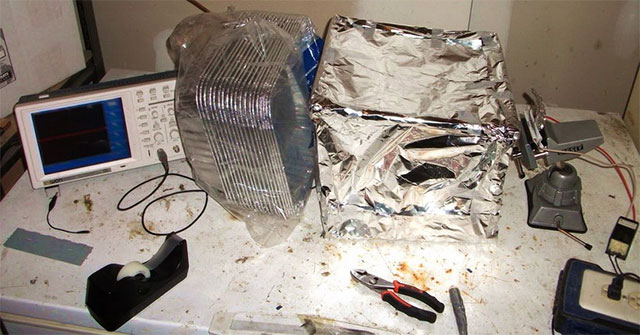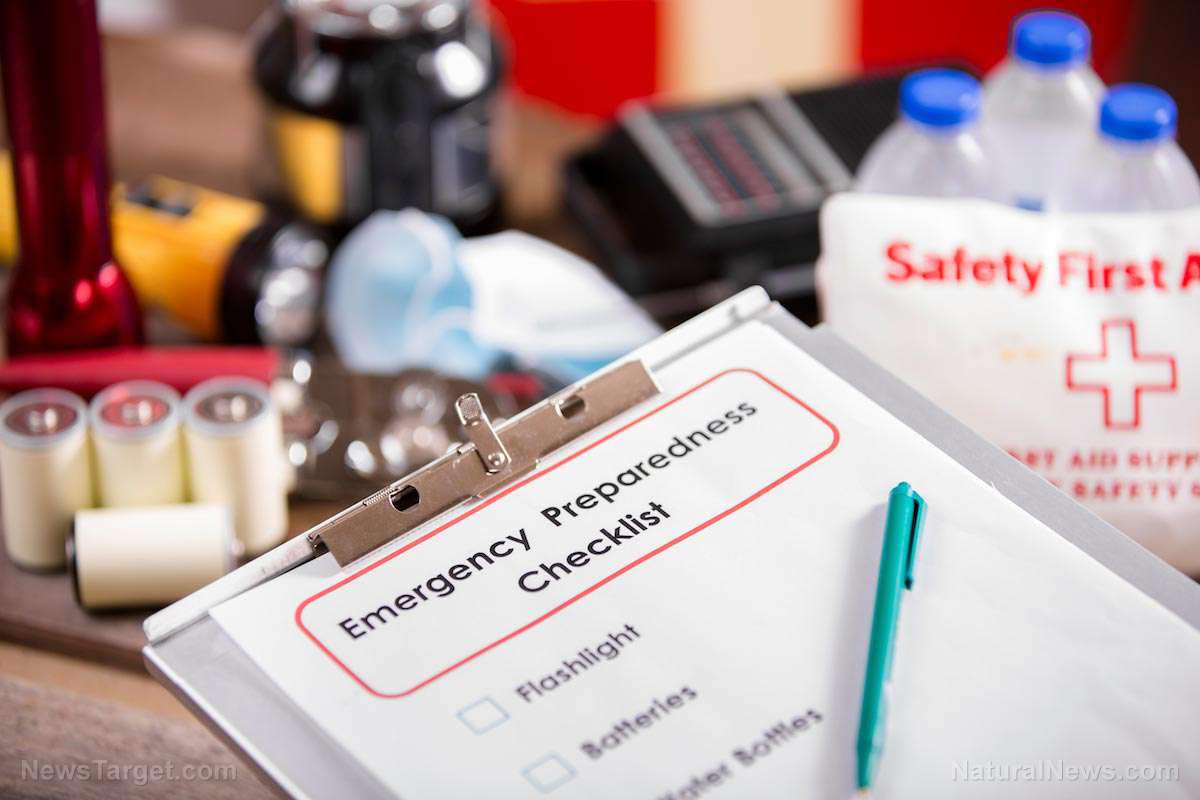Not everyone knows of this practical and life-saving use of a Faraday cage
11/01/2018 / By Edsel Cook

Every day, you run into situations where having a Faraday cage can be really helpful. In the future, it might even keep you alive when SHTF. An article in Alpha Survivalist covered the many uses of such devices.
Simply put, a Faraday cage is a space surrounded by conductive material that blocks off magnetic fields and redirects electricity into the ground. No form of electromagnetic energy can get in – or out – of a properly sealed cage.
A common example is a car. The metal body of your vehicle shields you from electrical and magnetic energy, such as lightning strikes, unless they are really powerful or go through the non-metallic windshield and windows. It was named after Michael Faraday, the researcher who first proved its effects in the 19th century.
Today, the Faraday cage is used in numerous ways. It protects electronics from radio frequencies and electromagnetic noise that could disrupt their operations.
In Faraday wallets, it protects the RFID cards of ATM cards, credit cards, and driver’s licenses from hacking. Faraday bags likewise protect the laptops and electronic devices in them. It ensure the accuracy of MRI scanning and the heating of leftovers in microwave ovens.
In aircraft, it keeps the crew and passengers safe from lightning strikes. In hazardous working environment, it prevents workers from getting electrocuted. (Related: How bulletproof is your EMP plan? These 8 things destroy even the best preparations.)
Faraday cages can protect valuable electronics from electromagnetic damage
There may come a time when a massive burst of electromagnetic energy will hit your location. It could be a really strong lightning strike, an EMP attack by a hostile foreign nation, a solar flare, or a sudden shift in Earth’s magnetic fields.
When that surge of electromagnetism takes place, only the electronics protected by the best and sturdiest Faraday cages will survive. All unprotected or insufficiently shielded electronic devices will burn out.
Almost all modern cars will be affected. Most cars rely on computers to run their systems. Their bodies are also made of lightweight materials that are not thick enough to shield their electronics.
In addition to taking out almost all forms of transportation, the electromagnetic burst will take out equipment that preppers and survivalists might be relying on to keep them alive. Two-way radios for communications, AM radios for listening to any surviving news stations, power tools that you might have been planning to hook up to a diesel generator – the list goes on and on.
To survive this disaster scenario, you will need to protect those equipment by keeping them inside Faraday cages. You can either purchase these shielded containers from trusted sources, or you can build them yourself.
Building your own Faraday cages
The simplest way to build a Faraday cage is to line a box with at least one layer of heavy duty aluminum foil. To test if you have successfully sealed the container, put something that emits an electromagnetic signal, like a smartphone, or receives those signals, like a radio.
If that device continues to emit or receive EM signals, either your foil is not thick enough or you have a gap in the lining that you need to plug. If your DIY Faraday cage works out, wrap your electronic device in cloth to cushion it, put it inside the container, and keep the cage closed unless necessary.
Ammunition boxes make for a good substitute Faraday cage. They are made of thick metal, have padded insides, and are sealed fairly tightly. The downside is that they are generally small.
Worried about the effects of an EMP attack? Find out what you need to do to survive at EMP.news.
Sources include:
Tagged Under: disaster survival, DIY, electromagnetic fields, electromagnetic pulse, Faraday cage, Homestead, homesteading, how-to, preparedness, prepper, prepping, self-help, SHTF, survival


















